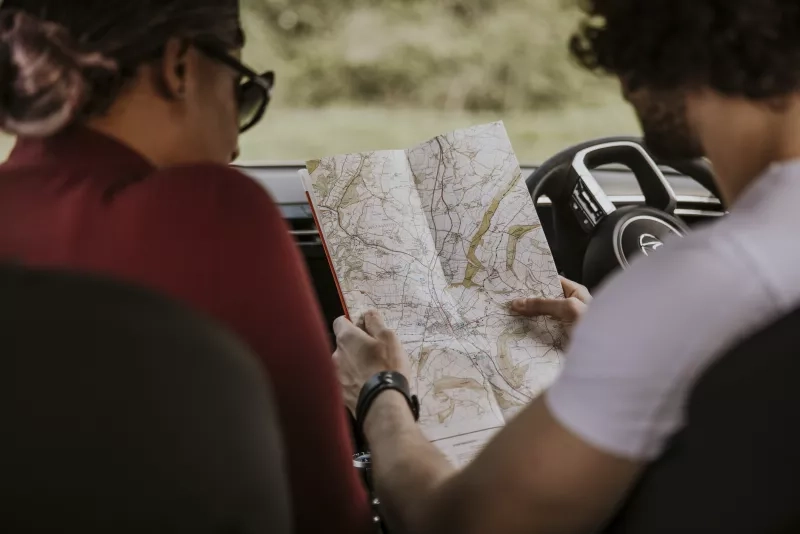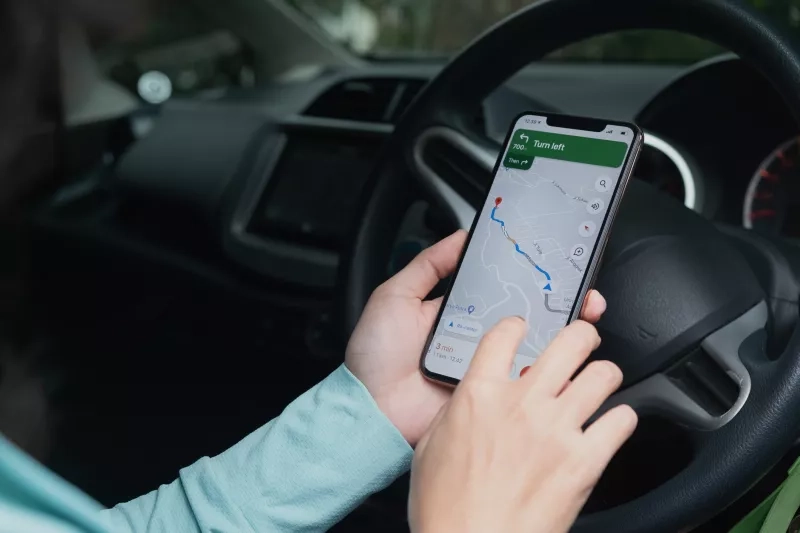
Why paper maps still matter in a digital world
2 Minute Read
In an era dominated by smartphones and GPS technology, it's easy to assume that traditional navigation methods, like paper maps, are relics of the past.
However, a recent experience by CAA Members Lyse and Michael is a powerful reminder of the enduring value of these old-school tools—especially in times of crisis.
On Sept. 26, 2024, they were travelling from their home in Noelville, Ont. to Asheville, N.C., for a wedding when Hurricane Helene struck.
"We woke up on Friday morning to a city in crisis. No power, no cell service, no internet, mass flooding, landslides," Cazabon-Keaney wrote in a letter to CAA North & East Ontario.
She explained that they were travelling to a wedding with a large group of people who have always been able to use technology as their map.
"I had brought with me my trusty CAA paper maps. I never leave on a trip without them," Cazabon-Keaney wrote. She explained that at 66 years old, she gets teased for carrying them around.
On Sept. 28, they led a group of vehicles out of the area towards Baltimore. Cazabon-Keaney wrote that the group largely relied on herself and her husband as they tried to navigate their way out of the area. Due to washed-out and blocked roads, they had to regroup more than once.
"Every single time that we stopped to regroup and decide which way to try next, we were surrounded by people who were panicking and couldn't believe that we had a map," Cazabon-Keaney wrote.

While paper can be a lifesaver in specific scenarios, there are ways to maximize your technology when you don't have access to a mobile data connection.
Here are some helpful tips to ensure you're not left stranded if you lose your data connection:
Download maps
Before setting out on a trip, download offline maps for your route using Google Maps. These maps work without a data connection, allowing you to navigate even in remote areas or during power outages.
Carry a portable power bank
In the event of an extended power outage, a fully charged portable power bank can keep your smartphone operational, ensuring you still have access to stored information, flashlight capabilities, or emergency contact numbers.
Write down emergency contacts
Save important phone numbers directly to your device or write them down. In emergencies, stored contacts can be critical if you cannot access your cell phone.
Stay informed
Before travelling, check weather reports and road conditions for your planned route. Websites and apps can provide up-to-date information on hazards, detours and closures.
So, as you plan your next trip, whether a road trip, a weekend getaway or a cross-country adventure, remember to pack your tech-savvy gadgets and a few traditional items. It could make all the difference when you find yourself in an emergency or navigating an unforeseen crisis.
If you don’t already have a paper map, visit your local CAA Store to pick one up before your next trip.




